Documentary
Oscar De La Hoya says he wanted the new documentary on his journey to become a champion boxer to be an “authentic and real” look at his complicated life.
The two-part film “The Golden Boy” includes interviews with the multi-world title-winning fighter, his family members, and former promoters and competitors.
De La Hoya grew up as the child of Mexican immigrants in East Los Angeles and had big dreams of winning a gold medal. When he was just 18, he won Olympic gold in 1992 and returned from the Barcelona games as a national celebrity.
The boxer says he was under tremendous pressure from his family and promoters to take advantage of his fame and continue to fight and promote his brand.
With photos, behind-the-scenes training videos and news clips, the film shows De La Hoya’s rise to success as a fighter and promoter. Interviews with family members—including De La Hoya’s three oldest children from three different women (he has three more with his former wife) – show how fame and money changed him and at times, show him in a negative light. But the former champion says he wanted to tell his full story and maybe even illicit some shock in viewers.
"That was the most important part for me is to move forward with it, is the fact that that I decided to be very authentic and real. I didn't want no sugarcoating on anything," De La Hoya told The Associated Press.
"I want… other people…who are close to me, to talk about me, how they feel, like my kids and my sister, my father--who who comes out like a villain and he probably doesn't even know it. My brother, my promoter, some of my trainers. So it was satisfying to see the final product because it's not me trying to cover up anything."
De La Hoya says he felt like “a robot” with few choices in the direction of his life so he acted out, and made some choices he regrets. He admits to being mostly absent from his older kids’ lives, which left them heartbroken. When he decided to tell his story in the new film, he wanted to face his mistakes and broken relationships head on.
"You know, there were a lot of empty years growing up, being absent for several years of their childhood. And that's the one part I most regret, is obviously not being there for them, not knowing how to be there for them. But, you know, today we have a great relationship, but it's a working relationship. It never stops. We have so much to catch up on. You know, I, I learned a lot from my parents. And obviously, that's exactly what I do not want to be."
De La Hoya says his personal and professional drive was fueled by the physical and emotional abuse he suffered from his parents, and says he was grateful for boxing so he could channel that pain.
"My household was abusive, to say the least. My mother passed away when I was 16, 17 years old and what people don't know is that she was very abusive physically, and that I was the only child that would receive it," De La Hoya said.
"When I would get inside the ring, I would have all this anger and rage, and I wouldn't change it for for anything, because I strongly feel that what I lived my life, the course of my life, was just meant to be because of how I lived at home, what I endured over the years, the abuse.. from my father and my mother. And so I had an outlet with boxing."
The last fight
The film extensively covers his boxing career, with clips from several of his most significant matches, including the one that effectively ended his career in the ring.
De La Hoya says his fight against Manny Pacquiao was the one that eats at him the most. Even during the training, he felt his heart and drive were not there and he began drinking during training.
"I remember not feeling it like emotionally and physically. I remember not feeling, my body was different. My energy was different. My mind was different. I didn't want to be there anymore," De La Hoya recalled.
"I remember just really not being into it. And when I stepped into the ring, when I fought him in Las Vegas, I already knew deep down inside that I was going to get beat up on. I already knew that I was a loser. And I remember there was a certain round where he was just throwing punches at me and beating me up, and I was thinking in my head, ‘Please just land the one punch to end it all.’ I was literally saying that and, and sure enough, yeah, the referee called off the fight. It was over and that's where my career ended."
The fighter spent several stints in rehab after abusing alcohol and drugs but refutes the notion that he had addiction issues.
"I don't feel it was an addiction. I really don't. I just felt that I was lost. I just felt that I had no direction. I just felt that drinking and drugs and women were going to fill that void that I had in my heart," De La Hoya explained.
"I didn't know how to get out of it. And I had to make the decision to get out. And yeah, and I did go through the rehabs, I did go through therapies and this and that. And I don't know, I think at this time now of my life, I'm I made the decision and I prepared myself over the years to just to find balance. It's all balance, you know, And life is great."
Part one of the "The Golden Boy" debuts July 24th on HBO, followed by part two on July 25th. Both episodes will be available to stream on Max beginning July 24.




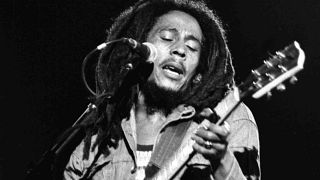
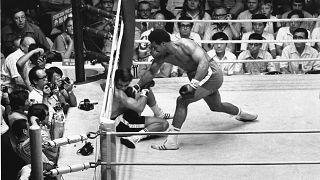
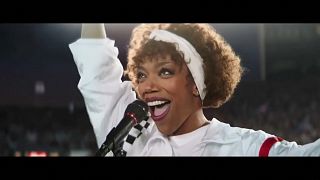
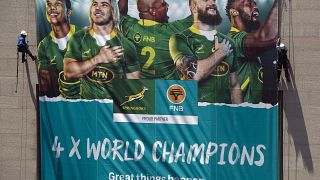
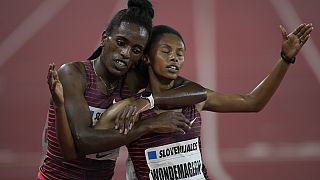
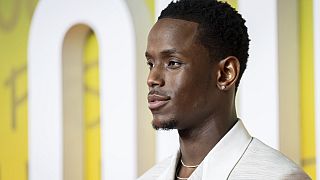
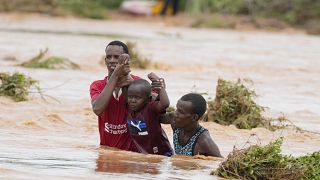
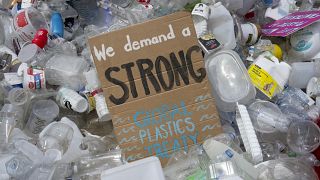
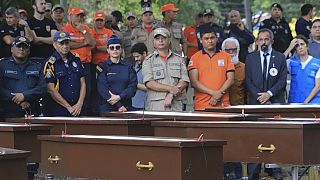
Go to video
Burkina Faso Suspends BBC and Voice of America
02:04
2024 New Orleans Jazz and Heritage Festival kicks off
01:13
Arab League deplores US veto denying Palestine full UN membership
01:01
Israel-Hamas war: Humanitarian aid parachuted into northern Gaza
01:01
Protests against U.S. military presence in Niger continue
01:28
Earth Day Org calls for 60% reduction in plastic production by 2040